Trinity College Dublin has started a weekly blog ahead of the Easter Rising centenary commemorations. This week it has compiled a collection of rare photographs that were taken in the aftermath of the Rising.
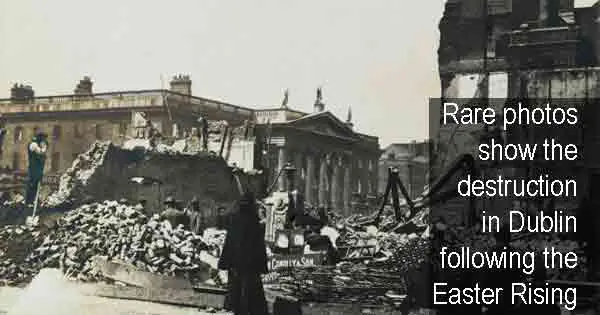
They show the devastating impact that the events of that week had on central Dublin after the British army was sent in to deal with the rebels.
The British destroyed much of the area surrounding the General Post Office, which is the iconic scene of the Rising. It was seized by the rebel leaders who stood in front of the building and declared Ireland to be an independent state.
Many of the buildings were left in ruins or on the brink of collapse. Some had to be demolished.
TCD’s blog is called Changed Utterly and is inspired by the poem Easter 1916 by WB Yeats.
The images featured in this week’s blog include a shot of the General Post Office from Nelson’s Pillar, the remains of Corner house on Middle Abbey, the remains of the Royal Hibernian Academy and several more.
Images taken by photography pioneer Thomas Johnson Westropp
They were taken by the Limerick born scholar Thomas Johnson Westropp who was a graduate of TCD.
He is known as a pioneer of using photography to preserve visual records of buildings that were in danger of being lost forever.
The photos he took in the days and weeks following the Rising are among the most important of his career.
They captured Dublin at a time when the public opinion changed from being willing to wait until the end of the First World War to push through Home Rule, to supporting the Rising and the fight for full independence.
The change was mainly due to the fact that the British executed the rebels, which was seen by the Irish public as a savage over-reaction.
However, the destruction caused to the city’s architecture also provided a constant reminder for people at the time of the dangers of facing down British might, and the destruction that could be unleashed.
Click here for the Trinity College’s Changed Utterly blog
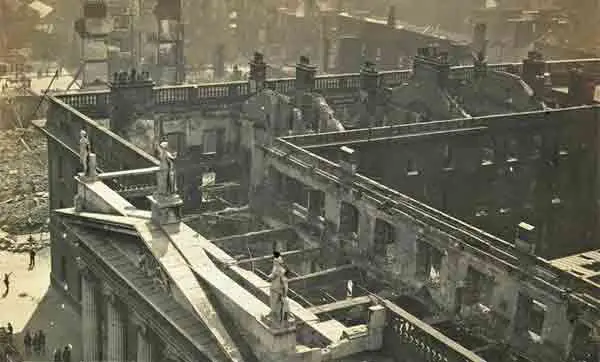
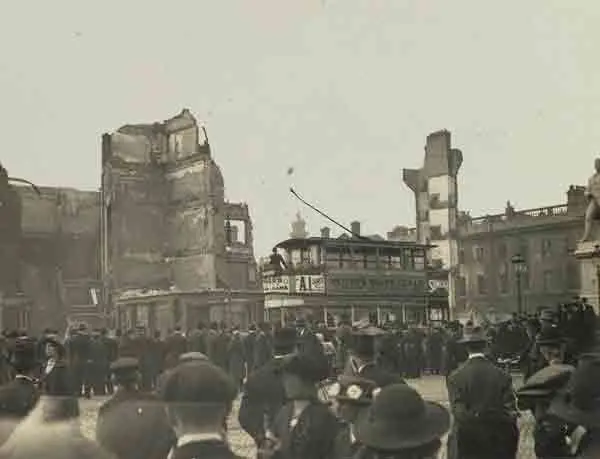
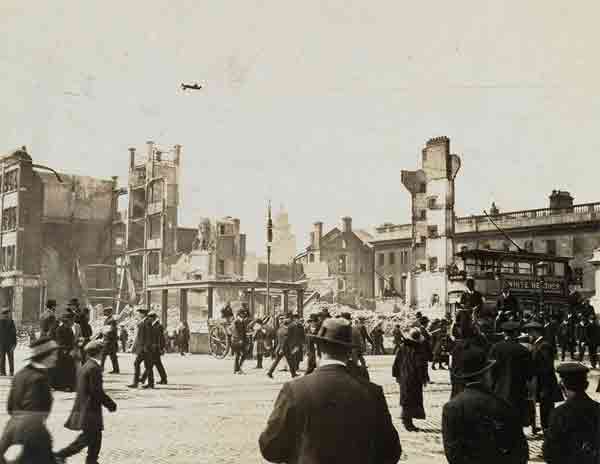
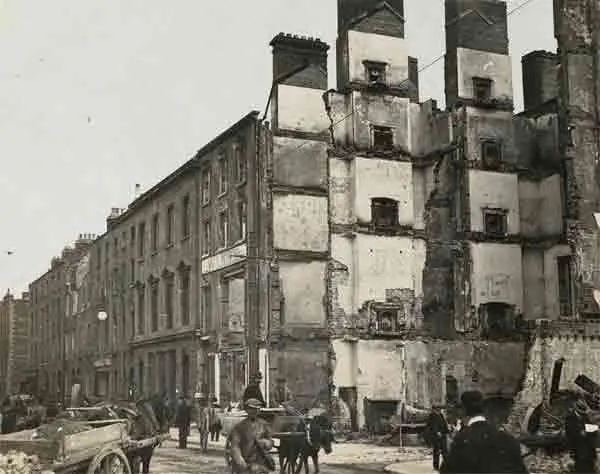
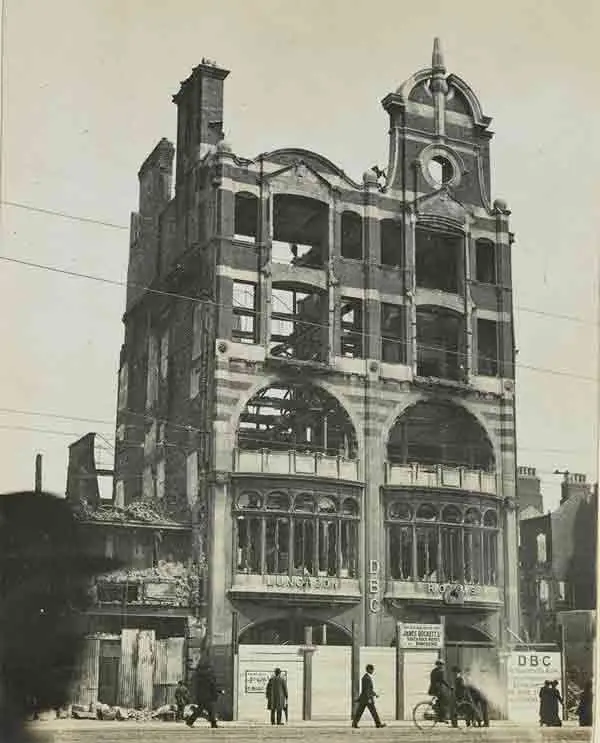
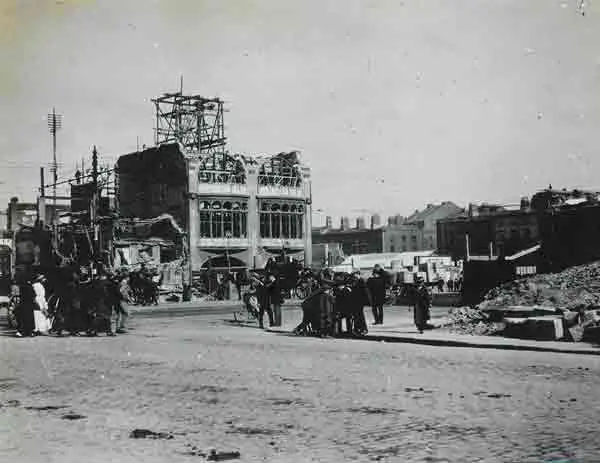
More history articles
The Neolithics – first people to leave their mark on Ireland